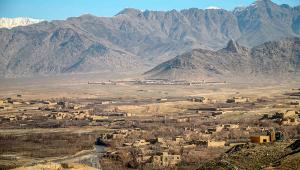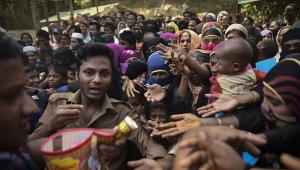The Covid-19 pandemic and resulting economic and health challenges in its wake provide a perfect opportunity for civil society groups to work closely with supreme audit institutions (SAIs), journalists, legislators, activists, and donors to demand transparency and accountability.
The International Budget Partnership and the INTOSAI Development Initiative (IDI) recent joint report, All Hands on Deck: Harnessing Accountability through External Public Audits, demonstrates that SAIs will be much more successful at providing proper oversight of funding and will be able to ensure that at-risk communities get the assistance they need if the SAI’s work is magnified by civil society groups, journalists, and lawmakers.
Public participation is critical and is often missing in current oversight systems. There are some emerging models on SAI and civil society organisation collaborations that light a path that other SAIs can follow. Here are few examples where improved civic engagement in audits is leading to accountability and change:
In Sierra Leone, the Audit Service and the Budget Advocacy Network are coordinating their efforts to get proper water and sanitation in schools. Students and teachers say they cannot safely return to school during the pandemic without running water. The Audit Service inspected a sample of 35 schools and found an average of only one latrine for every 144 students (compared to the minimum standard of one per 45). Only four schools had water for hand washing, and those didn’t provide soap.
The Budget Advocacy Network has undertaken a public expenditure tracking survey and produced a scorecard based on data published by the SAI and education ministry. These scorecards provide technical data on school performance in ways that are accessible to a popular audience.
With Covid-19 bringing more attention to the matter, the government finally appears willing and able to act. Adama Renner, deputy auditor general for the Audit Service said: “without public engagement with our audit findings, they are just reports packed up and stuck on a shelf.”
In Argentina, the country’s audit institution works with civil society groups to battle a complicated long standing health problem caused by Chagas disease. The Auditoría General de la Nación and the Asociacion Civil Por la lgualdad y la Justicia (ACIJ) are focusing on underperforming government programmes to prevent, diagnose, and treat 1.5 million people affected by Chagas, a tropical parasitic disease.
Solutions, including providing funding for better building materials and messaging campaigns around ending stigmas, can help to prevent Chagas, a disease that affects people in Argentina and across Latin America. But no one can solve the problem alone.
In August 2020, the Ministry of Health announced the launch of a participatory process of regulation that will govern the management of Chagas. Minister Ginés González García declared his ministry’s "political commitment to revitalize strategies to address Chagas". ACIJ produced policy briefs and budget analysis reports on Chagas ahead of the 2020 and 2021 budget deliberations and shared their analyses with the new ministry of health authorities and legislators.
The new administration has acknowledged the issue of underfunding and underspending on Chagas prevention, diagnosis, and treatment. The latest national budget commits the highest allocation for tackling Chagas in the last ten years. The government is moving forward on improving access to treatment and a public campaign to demystify the disease.
In Nepal, the Office of the Auditor General and Freedom Forum are partnering to strengthen the management of local development funds that support infrastructure projects, such as road, water supply and sewerage works. The national procurement office has for the first time ever issued a unified guideline for user committees tasked with managing local development funds.
The new guideline replaces the ad hoc rules that were previously used by local committees to manage local development funds and is expected to reduce mismanagement and corruption in the use of these funds. The guideline was developed after consultations with the SAI and civil society and creates procedures and controls to ensure the accountability and sustainability of development projects.
As reported in the Public Finance Focus coverage of IBP/IDI’s All Hands on Deck report, public participation and follow-up on audits are the weakest links in oversight systems. The time for collaboration is now.
Read more about the important work going on in Sierra Leone to bring running water to schools here.
Read more about the work that CSOs and others did to spur the government to fund needed efforts to improve health care in Argentina here.
Read more about the efforts in Nepal to support needed infrastructure projects here.














